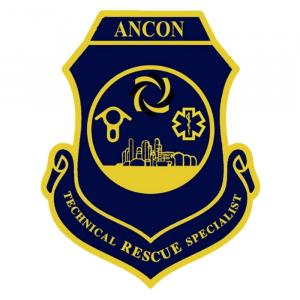Confined Space Attendant Duties, More than a Hole Watch
OSHA created a set of standards designed to protect confined space entrants from hazards. The good news is that those standards make a difference.
More often than not, accidents are caused by easily preventable preparation miss-steps. Examples would be a failure to secure proper ventilation or securing a permit before entry. That is precisely where a confined space attendant provides the monitoring services that make a huge difference. The safety of confined space entrants relies entirely on the abilities to fulfill the confined space attendant duties correctly.
Why you need a confined space attendant
Code 1510 1910.146(i) of OSHA’s confined space entry standards specifically states the need for a confined space attendant. In essence, the attendant is to remain outside the confined space to provide monitoring, warning, and notification as needed.
The role of the confined space attendant is driven by their understanding of the specific hazards relevant to the space. This includes potential risks that can affect the entrants, but also the repercussions of those risks if they are to reach beyond the confined space.
To put it in simple terms, the confined space attendant is solely responsible for the safety of team members within and around the confined space.
What are the confined space attendant duties?
The role of the attendant is designed around three core factors: Knowledge and understanding of the hazards, monitoring of the confined space, and rapid response to emergencies. As such, you can’t afford to entrust the confined space attendant duties to an untrained hole-watch.
Indeed, the attendant plays a significant role in reducing fatalities by:
- Assessing the risks inside and around the confined space
- Controlling and monitoring access to the space
- Keeping strict records of the confined space activities and situation, including personnel entry and exit, air test results, etc.
- Monitoring entrants as they enter and exit the space to promote their safety
- Monitoring atmospheric conditions in the confined space before and during entry
- Requesting emergency assistance if needed
The confined space attendant cannot leave their post unattended for the duration of the work. Failure to understand, notice or evaluate hazards as they occur can have devastating consequences. This is precisely why the presence of a trained attendant could make the difference between workplace safety and work fatalities.
What difference do attendant safety watchers make?
More often than not, the role of the confined space attendant is left to inexperienced team members asked to watch over the space. Many have little to no knowledge of the essential aspects inherent to monitoring, such as atmospheric testing results. Untrained attendants are not equipped to spot alarming results as they monitor the condition inside the space.
On the other hand, a trained confined space attendant can call for confined space rescue when the first signs of anomalies or prohibited conditions appear. In a situation where time is of the essence, you want someone who’s dedicated to monitoring hazards for a quick and effective life-saving response.
How do you train a confined space attendant?
DCS Rescue is dedicated to the delivery of prevention for situations with the potential for greater risks. Every attendant safety watcher is fully specialized in the management and monitoring of confined spaces. We provide attendant safety watches that include monitoring of all the hazards inherent to confined space work, gas detection and atmospheric controls, and entry permits.
Countless accidents occur as a result of lack of training. Too many industry sectors wrongly assume that the role of a confined space attendant can be fulfilled by a member of the team working inside or outside the space.
It is worth mentioning that the failure to take the duties of the attendant seriously is partially responsible for the majority of fatalities in confined spaces. There is nothing more damaging for safety than rejecting the legitimate calls for safety from an attendant.
A qualified attendant is not just someone knowledgeable about the specific conditions of the confined space. They must also be trusted and respected by other members of the team. At DCS Rescue, our trained attendants put the safety of your business first.
Lance B
DCS Rescue
+1 562-595-3002
lanceb@anconservices.com
Visit us on social media:
Facebook
LinkedIn
Legal Disclaimer:
EIN Presswire provides this news content "as is" without warranty of any kind. We do not accept any responsibility or liability for the accuracy, content, images, videos, licenses, completeness, legality, or reliability of the information contained in this article. If you have any complaints or copyright issues related to this article, kindly contact the author above.


